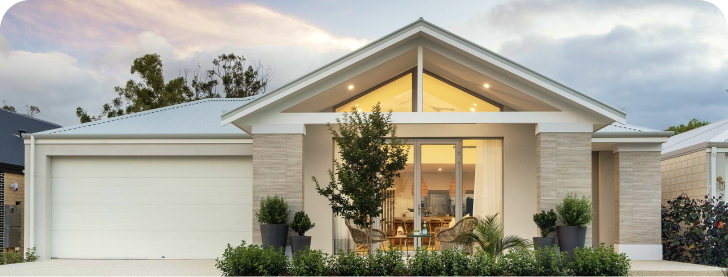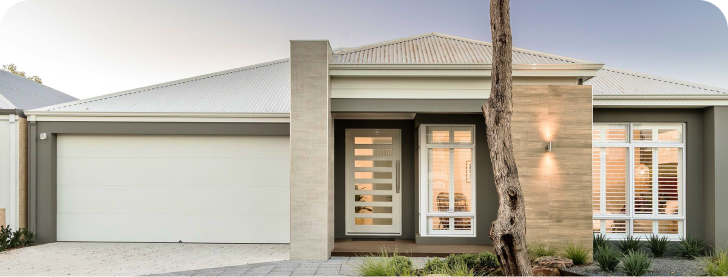
Accessory dwelling units (ADUs), since their appearance, have conquered the hearts of many American citizens wishing to have another unit in possession. They allow homeowners to turn to reality their dreams concerning having a living space to practice their hobbies, a place to accommodate their aging parents, or a unit where a home office would perfectly fit. However, among other ways of using an ADU, the most popular one is the possibility of using it as a rental property. But at the same time, every landlord should remember that many possible problems may occur when you start organizing and using an ADU as a rental property.
One of many possible issues, and one of the most difficult ones to solve, is conflict resolution. Hence, conflict management is a really valuable skill you have to get. Conflicts are natural and may take place every now and then in any relationship. You, as a homeowner, will be able to consider the conflict from different perspectives and, in the end, offer a solution that would satisfy both parties involved.
In this article, we will closely examine conflict resolution, learn how to cut personality differences, and what negative consequences the inability to solve a conflict may lead to. If you have been looking for a comprehensive guide on how to resolve conflicts or just want to look at interpersonal conflict from another angle, this guide is for you. Without further ado, let's start!
The conflicts do not simply appear out of the blue, and they usually have some complex issues on the basis. ADUs introduce an amazing way of living together and paying less. However, even their conflicts are somewhat inevitable. To try to avoid them, it is possible to establish clear rules for co-living in granny flats.
The first step toward promoting healthy problem-solving and creating connections between people involved in living in one living space is to involve the tenants in the process of creating rules and expectations themselves. After all, it is them who will live according to these rules, isn't it? Encourage them to speak their mind and note every wish and suggestion they have concerning ADU rules.
Next, when you have managed to invite everyone into collaboration, it is time to agree on the rules they will need to follow. Normally, most of the tenants can come up with many ideas of appropriate behavior, so your role here is to shrink it to fit the format of the guide. These rules usually include the understanding of common areas and shared space, quiet hours, privacy, personal belongings, cleaning, maintenance, guest policy, financial responsibilities, safety, and security. Keep track of everything you write, and try not to forget any of these elements.
Setting the rules is great, but the main reason for them to exist is the necessity to follow them. It is your duty to do the checks and solve any issues that arise by following the rules. Also, sometimes it is important to add new ones to the guide or get rid of the irrelevant ones. To determine your action plan, seek feedback from residents.
The key to solving all the problems in the world is communication. The ability for conflict resolution lies in your actions that would establish openness and respect for both parties in any given situation.
To develop open communication, you should first establish a welcoming environment. Imagine that you organize a book club or another place where everyone shares an interest. Here all strategies can help. For example, you can let them focus on something that connects them and only after this say something about the troubling topic. Also, you can show yourself as a leader and promote openness through active listening and mutual respect.
Another way of establishing open communication is the creation of communication channels. For sure, it is not always possible to have a meet-up every week, but most of the problems require immediate response. In order not to waste time and diminish constant tension, you could agree on a platform to share requests and concerns. Here you can encourage effective communication and maintain the confidentiality of the people involved.
The most important element of open communication is your commitment to diminishing the differences between the tenants and underlining their similarities. To discuss their feelings, they have to feel safe. Show that you and other tenants understand their perspective and are not willing to escalate.
The longer the conflict exists, the more stress it provokes and, in the end, can lead to losing your tenants and a source of income. To avoid that, it is essential to recognize the problem as early as possible and act fast.
The following steps for addressing the conflict will help you to do so in time:
Even though every conflict is different, and it may be hard to find a clear plan for the resolution process, it is vital to keep in mind the key principles that will help you have the disputes addressed. The process can include initial discussion or the step of offering solutions to the mediation or working with higher authority.
With a step-by-step plan in your hands, you should not waste any time. It is critical to act promptly as ignoring or dismissing conflicts can lead to their escalation, and it should be your main concern to keep it at a low level. Despite the fact that it may seem like not a serious problem, you should pay attention to any conflict. Also, you will master the skills of conflict management when you act proactively. In other words, conflict management is done effectively when you have offered a solution to all the problems that could lead to possible conflict in the future.
Another step toward achieving peaceful and calm relationships between the tenants is to let them participate directly in interpersonal conflict resolution. Offer them materials on problem-solving, including books, videos, or experts' opinions on the matter. Your main goal here is to give the tenants the possibility to work out skills and get knowledge on peaceful conflict resolution.
The last step of cooperation in conflict management is to do regular checks. They will help you figure out the strong and weak sides of your approach and come up with other ways of dealing with conflicts and setting long-term objectives for the future. You can keep a record of the resolved issues and check how the relationship has improved.
Knowing how to address the conflict early is one of the most important issues that you have to deal with when interacting with tenants. If you manage to do so early and proactively, it will save you from many possible headaches.
An important part of any interpersonal relationship is respect for another person's private space. However, this part of coliving is often violated, which becomes the most often reason for a conflict. After the first issue is identified, later, everything forms like a snowball. Hence, it is important to consider some ideas connected with the principles of privacy.
First, you or the tenants should decide on clear boundaries of shared and personal space. Your task here is to check if every tenant has enough personal space and if no one is in the prevailing position. Also, you can offer them to create clear color highlighting of personal and shared space. Use duct tape to develop a clear outline.
When the shared and personal spaces are divided, it is high time to create special rules for the behavior in both these spaces. With personal rooms, there are almost no problems, but rarely does any person want to take responsibility for the shared property, even though you should keep it tidy regularly too. Hence, it would be wrong to leave your tenants without a clear schedule that would allow them to share responsibilities. This approach will make a difference in respecting each person's privacy and will help you avoid conflicts.
Another issue that needs to be addressed is guest policy. Everyone likes to invite guests, but sometimes it is hard to realize that an extra person can intrude upon others' privacy or destroy harmony. One of the strategies for tackling such behavior is to define the frequency of guests coming to the unit as well as the duration of their stay. Remember it and use it next time with your tenants.
Another way of solving a conflict and maintaining good relationships in the community is finding common ground and compromise. Overall, it can be named one of the most important skills for everyone involved in working with people. Every person should understand that another person may have a different background, preferences, and overall lifestyle. However, living in a shared space means the ability to recognize differences and resolve conflicts that may occur.
To find compromise and common ground in relationships, you can keep in mind the following strategies:
As you can see, finding common ground requires certain resources from you. However, having found the solution, you will avoid many inconveniences that could occur.
If you have been thinking of an ADU like a grand manor with enormous amounts of square meters available, you have had the wrong idea. Normally, it is a rather small place where tenants hear every sound, be the source on the same or another floor. And at the same time, everyone knows what disruptive nature the excessive noise and unpleasant sounds have.
One of the most popular ways of keeping noise levels under control is quiet hours. Typically, at night, it is not allowed at all to turn the volume up and listen to loud music. This rule is used by many governments and perhaps works in your area too. If any problems with following these rules arise, communicate with the tenant and state why this regime is needed and why their behavior is inappropriate.
To avoid other disturbances of the same sort that can always appear while living in an ADU, it is vital to develop strategies for reducing the noise coming from the environment. This may include the proposition to use headphones, reduce overall TV volume, or use soft surfaces like rugs or carpeting. Also, you can install soundproofing materials on the walls to mitigate the sound coming from the outside.
There are many important issues to resolve, but managing shared resources and responsibilities stays under heated discussion. Because the resources are shared, all tenants should be equally committed to using them in the best possible way. Also, in this paragraph, we will discuss the ability to share responsibilities, which many dwellers may be lacking.
The main principles of living together are commitment and respect for each other. With shared resources, it is all the same. To manage them successfully, everyone should understand the necessity and conditions under which they can use them. Moreover, you can create a special inventory with things like kitchen utensils or cleaning supplies. Focus on keeping track of used items and making them accessible to all the residents.
Shared responsibilities are directly connected with resources as they cover, for example, the cleaning schedule or expense management. The solution to having these problems resolved is to maintain mutual respect and keep your behavior corresponding to the needs of the other party. Tenants should clearly understand the responsibilities they share and develop a schedule where it will be shown who should tackle which task. If it is impossible, you should delegate the responsibility to another person with the necessary skills or knowledge.
Monetary disputes are what most tenants are losing their minds about. Everyone is sensitive about money, and certain quarrels provoke unusual behavior among co-living people. It is the task of homeowners to handle these disputes carefully and normalize the relationships inside the unit.
Before you start resolving the conflict, it is critical to ensure that all parties involved clearly understand their responsibilities concerning money. They should know how much the rent is, when the due date is, and how the dwellers divide the utilities. You should write it in the legal documents to show this info to them in case of any disputes. Also, one of the solutions would be to sign these documents.
Once you have understood that you can offer a solution to the problem, you can start the interrogation process. In order not to harm anyone's feelings, it is crucial to make statements in a very respectful way. This will help you find a consensus and not escalate the conflict any further. Clearly show your position on the matter and try to find a middle ground. The solution to future problems can be shared expense tracking. On the Internet, there are az variety of tools that offer transparent info about all expenses, which will, hopefully, address any issues and concerns and satisfy all parties.
We have already discussed how parties should manage shared living space and responsibilities around the unit. However, it is not a universal remedy, and sometimes you will have to address conflicts and find solutions to the problems. We would like to offer some strategies that may help you deal with problems that may arise.
Typical strategies for dealing with concerns are the following:
To resolve present conflicts and prevent future ones from appearing, pay attention to the tips we have offered. Remember to listen to your inner voice and gut feeling in the question of addressing concerns, and try not to escalate in any way.

Conflicts are usually typical in communities where some tensions, differences, or unresolved problems exist. But if you manage to create a positive and supportive community, you will be able to show every person the necessity to maintain good relationships and how it influences co-living.
Keeping your unit diverse and inclusive is a vital part of the creation of a positive community. Yes, everyone has their own point of view on a problem, and the position may not be the same, but tenants should share values of a comfortable co-living and act in order not to harm the feelings of a person next door.
Also, your example as a person can be a huge argument for creating a positive community. If the tenants see that the landlord is happy to deal with common problems, they will feel support and realize the shared values in practice.
The way one will use an accessory dwelling unit depends on the person, their preferences, and needs. For some people, it is a source of income, and they like to rent it out; for others, it is an opportunity to keep family members nearby. Also another interesting option is to turn this unit into a home office and realize the dream of working from home.
To generate income, you should rent it out to people who want their own living space. You can have their headaches resolved by giving them an opportunity to live on your lot. Also, the unit can be divided into several parts to accommodate two or more people. This clever resolution will maximize your income and have the problem of free space resolved.
Yes, ADU construction is not a cheap process, and you will need some money in your bank account. Perhaps, you will need to save some for a period of time. Also, create a goal or a New Year resolution that will help you keep this idea in mind. But don't forget about a resolution right after the festivities!











